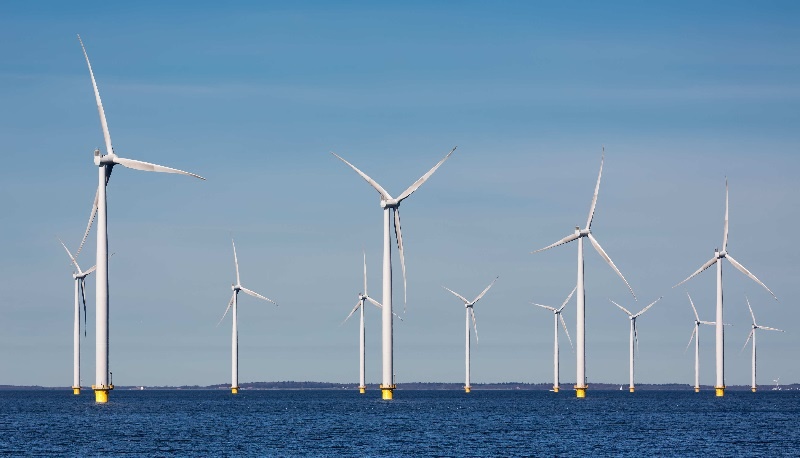Promises must be kept in climate fight
What is Denmark’s message and its ambition for the upcoming COP26 climate summit?
 |
| Kim Højlund Christensen, Danish Ambassador to Vietnam |
COP26 will take place from October 31 in Glasgow, Scotland and it will be the most important climate conference since the Paris Agreement. It is essential that all nations fulfil the promise of the Paris Agreement and reduce their emissions to limit temperature rise to 1.5-degrees from pre-industrial levels. However, we are not on track to achieve this, so we urgently need all countries to increase their ambitions for reducing emissions.
That is why Denmark has committed to reducing its emissions by 70 per cent by 2030. We believe that this is not only necessary but certainly also possible. Likewise, we urge all countries – especially the big emitters – to submit their updated nationally determined contributions before COP26 to make sure that it is compatible with the Paris Agreement and the 1.5 degree scenario.
An important element to underpin enhanced ambition in the climate change responses from emerging economies like Vietnam is to honour the promise from developed countries to provide climate finance. An important message from Denmark is that we are ready to contribute our lion’s share to deliver on this pledge.
Denmark is a small country that is only responsible for a fraction of global emissions, even though as a developed country we have relatively high emissions per capita. In Denmark, we have been working towards a green transition for many decades and have substantial experience and practical solutions to combat climate change.
We are committed to working with emerging economies, including Vietnam, to assist and support their own efforts to deal with climate change.
At COP15 in Copenhagen in 2009, developed countries promised developing nations $100 billion a year in climate finance. How has Denmark committed to this?
We need to honour that promise and to do that, developed countries have a shared responsibility to increase their individual pledges so we can collectively deliver the promised amount. Recent numbers clearly indicate that we are not there yet.
Denmark is ready to contribute with its fair share. We will provide at least $500 million annually by 2023 in grant-based climate finance, and we are strengthening our efforts to mobilise public and private finance from other sources.
With our combined grant-based finance and mobilised finance, Denmark is set to reach 1 per cent of the overall collective $100 billion target. This is a substantial share from Denmark and we hope this will inspire and encourage others to follow.
Vietnam plans to reduce total greenhouse gas (GHG) emissions by 9 per cent compared to “business as usual”, and the ratio could even increase to 27 per cent if Vietnam receives sufficient international support. What are the keys to achieving these goals?
Nearly 70 per cent of GHG emissions in Vietnam come from energy production and consumption. Therefore, action in the energy sector is paramount for the green transition of the country’s economy.
Less emphasis on coal generation capacity and working towards a situation where no new coal is permitted and ultimately a phase-out of coal would have a big impact on the emissions from the energy sector. We urge Vietnam to consider joining the increasing action on coal phase-out, while at the same time scaling up Vietnam’s renewable energy capacity.
 |
In particular, large-scale deployment of offshore wind can be a national alternative to coal power plants because of Vietnam’s long coastline and the impressive wind resources the country is endowed with.
Therefore, Denmark has been urging Vietnam to include more renewable energy in its upcoming national power development plan. Vietnam has significant potential to increase ambition in national climate targets, particularly in the energy sector, and to set clear political pledges for peak emissions and net-zero target years. Such commitments would see Vietnam join a growing global coalition of ambitious nations with over 130 countries pledging net-zero targets in their long-term strategies.
It would also reaffirm Vietnam’s commitment to global efforts to reduce global warming and combat climate change.
How has Denmark supported climate change activities in Vietnam?
The cooperation between Denmark and Vietnam in the areas of energy and climate has been ongoing for many years, from traditional development cooperation to a full-fledged partnership. In 2009, Denmark was the first country to support Vietnam’s National Target Programme on Climate Change. Since then, the Danish government has contributed some $140 million to finance climate change and green growth activities in Vietnam.
In 2013, the current Danish-Vietnamese Energy Partnership Programme was established. One of the products of this cooperation was the biennial Energy Outlook Report with scenarios for green development of the energy sector in Vietnam. According to the 2021 report, Vietnam has great potential for a green transition, which by 2050 can save up to 320 million tonnes of CO2 emissions annually compared to the current policy direction. This corresponds to removing annual CO2 emissions from 45 Vietnamese coal power plants.
The Energy Outlook report clearly demonstrates that green solutions can make Vietnam’s energy sector more cost-effective and sustainable. The programme also encompasses collaboration on energy efficiency, grid development and, more recently, on offshore wind. Our collaboration has shown the potential to deliver important cuts in GHG emissions here while securing continued economic growth and prosperity for the people of Vietnam.
Denmark is keen to continue being a close and trusted partner to Vietnam in efforts to handle the challenges of securing energy for continued economic growth at competitive prices, while also dealing with the challenge of climate change. These goals go hand-in-hand with the ambitions towards combatting climate change, and the green transition will have a big impact on Vietnam’s future exports and competitiveness.
What the stars mean:
★ Poor ★ ★ Promising ★★★ Good ★★★★ Very good ★★★★★ Exceptional
Related Contents
Latest News
More News
- NAB Innovation Centre underscores Vietnam’s appeal for tech investment (January 30, 2026 | 11:16)
- Vietnam moves towards market-based fuel management with E10 rollout (January 30, 2026 | 11:10)
- Vietnam startup funding enters a period of capital reset (January 30, 2026 | 11:06)
- Vietnam strengthens public debt management with World Bank and IMF (January 30, 2026 | 11:00)
- PM inspects APEC 2027 project progress in An Giang province (January 29, 2026 | 09:00)
- Vietnam among the world’s top 15 trading nations (January 28, 2026 | 17:12)
- Vietnam accelerates preparations for arbitration centre linked to new financial hub (January 28, 2026 | 17:09)
- Vietnam's IPO market on recovery trajectory (January 28, 2026 | 17:04)
- Digital economy takes centre stage in Vietnam’s new growth model (January 28, 2026 | 11:43)
- EU Council president to visit Vietnam amid partnership upgrade (January 28, 2026 | 11:00)

 Tag:
Tag:




















 Mobile Version
Mobile Version